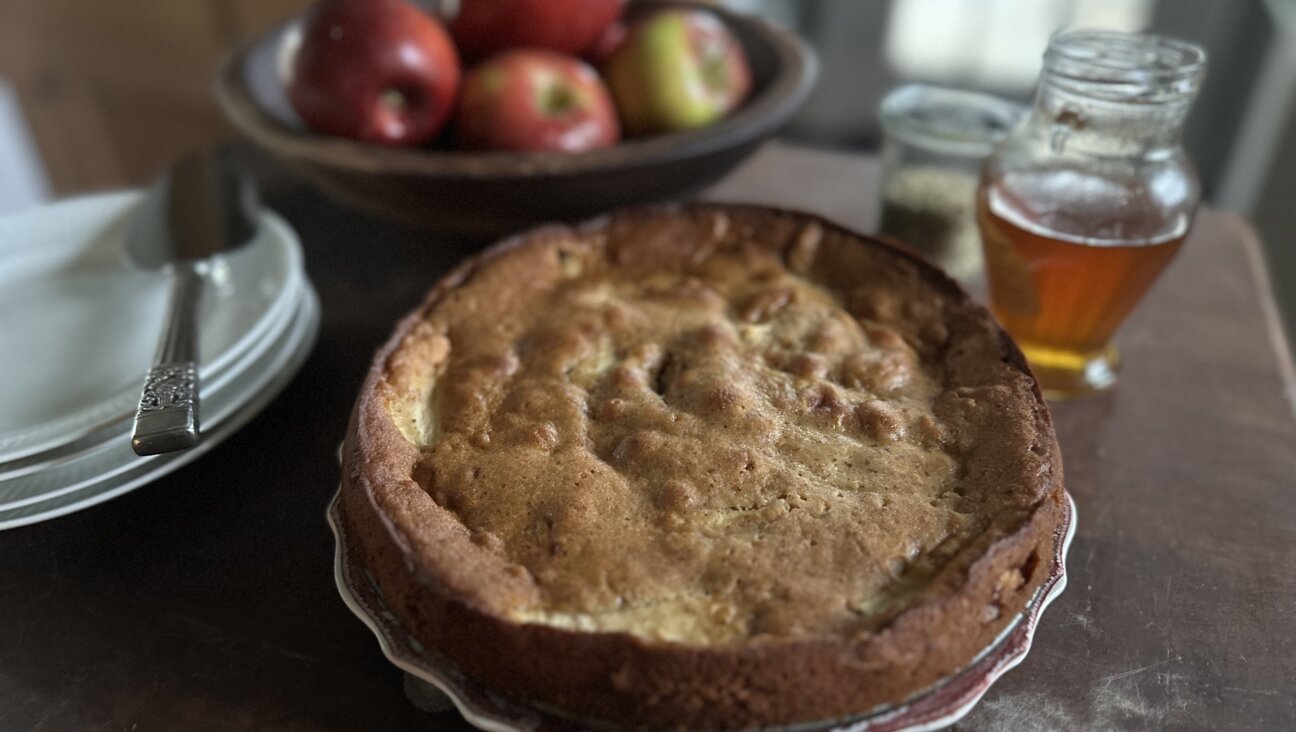Modern Cookies With Old-World Connections

Image by Courtesy of Café Warshafsky
Café Warshafsky’s lavendar and coconut shortbread.
makes great shortbread cookies. Its ice creams are a hit. There’s even a hip, handmade logo.
Don’t bother mapping it; the café doesn’t exist — at least in physical form. But it’s very real in the mind of Mai Warshafsky, the artist-turned-baker who created the nostalgia-drenched brand to market her meticulously crafted shortbread cookies and ice creams.
“A lot of people ask me where the café is,” Warshafsky told the Forward from the Harlem commercial kitchen where she and an assistant work around the clock to supply a growing number of retail customers. “Maybe it’s a little wicked of me, but it’s fun to have a concept. I wanted to conjure up classic café life with these products; a sense of place where creative people hang out.”

Image by Courtesy of Café Warshafsky
One of the biggest influences on Mai Warshafsky (above) is her late paternal grandfather, who left Warsaw as a teen in the 1930s, landing in Cuba before settling in Brooklyn.
Her products are just as evocative. Warshafsky infuses buttery, delicate shortbreads with intense notes from Earl Grey, raspberry hibiscus and hazelnut/chocolate teas, and spikes her lush ice creams with flavor bombs like pink peppercorn and blackcurrant/anise. She’s been just as particular about cultivating her client base: Rather than go big, she’s tapped cool-kid New York hangouts like Café Integral, Dimes and Tygershark as wholesale customers.
Café Warshafsky happened by accident. A printmaker who mostly baked for friends, Warshafsky was waitressing at Jewishy Soho bistro Jack’s Wife Freda in 2014. “As an artist, you have to feed yourself,” she says. On a whim, she brought a batch of her lavender and coconut cookies to a staff meeting.
“The owners said, ‘We’ll buy 100 of these right now,’ and that was my first paid order,” Warshafsky recalls. “They were the first people who said, ‘We believe in you. Let’s take a chance on this kid.’ It was huge.”
Warshafsky sensed the birth of a business, and started knocking on doors. A sales call to Soho tea emporium Harney & Sons proved pivotal. “I made samples of my Earl Grey cookie, which they loved,” she recalls. “I asked if I could make exclusive flavors with their teas, which they were really into.” Once her range expanded, “clients started coming by word of mouth, and from seeking out places where I wanted to be. I don’t have that many accounts, but I love every one of them.”
One of the biggest influences on Warshafsky’s budding business has been her late paternal grandfather — though the two never met. “He passed away when my Dad was 15, so I only know him from stories,” she says. Samuel Warshafsky left Warsaw as a teen in the 1930s, landing in Cuba before settling in Brooklyn.
“He fixed watches; he and my grandma lived in Brownsville, upstairs from his shop,” Warshafsky recalls. “So I feel like my grandparents have this classic New York immigrant story. They played a part in building this city, as small and particular as their businesses were. They were part of the landscape.”
The lively café life of pre-war Poland, and Europe, was also on her mind when she launched the brand. “I want that old-world connection,” she says. “It’s where my family comes from. But it’s fresh, and through my vision. The packaging and brand reflects a mom-and-pop New York that I really believe in.”
Next up for the imaginary café: A large online presence and big accounts — eventually. In the meantime, Warshafsky is creating an exclusive series of classic shortbread tins for Harney & Sons, the tea shop that gave her an early break. And Café Warshafsky itself may soon become a brick-and-mortar presence.
“I like having relationships with independents, but I’m also a businesswoman,” Warshafsky says. “But I’d definitely like a real cafe. And I want it to represent the New York City I believe in.”
Michael Kaminer is a contributing editor at the Forward.
A message from our CEO & publisher Rachel Fishman Feddersen

I hope you appreciated this article. Before you go, I’d like to ask you to please support the Forward’s award-winning, nonprofit journalism during this critical time.
At a time when other newsrooms are closing or cutting back, the Forward has removed its paywall and invested additional resources to report on the ground from Israel and around the U.S. on the impact of the war, rising antisemitism and polarized discourse.
Readers like you make it all possible. Support our work by becoming a Forward Member and connect with our journalism and your community.
— Rachel Fishman Feddersen, Publisher and CEO























